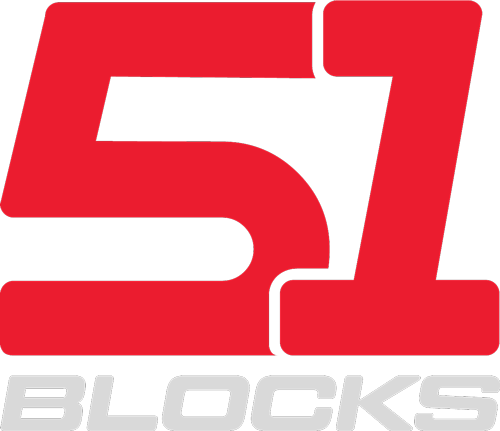Looking to stay on top of your agency projects and track time like a pro? Dive into these 7 best time-tracking methods that will streamline your workflow and boost productivity.
From user-friendly apps to seamless project management software integration, you’ll have all the tools at your fingertips. Say goodbye to the hassle of manual time sheets and hello to efficient time-tracking with Google Calendar and CRM systems.
With these methods, you’ll be able to effortlessly monitor your team’s progress and ensure that every second is accounted for.
Get ready to take control of your time and elevate your project management game!
Key Takeaways
- Time-tracking apps and Excel spreadsheets are both effective methods for tracking time on agency projects.
- Using Excel for time tracking allows for customization and flexibility to fit project needs.
- Integration with project management software enhances time-tracking and project management capabilities.
- Manual time sheets can be streamlined with the right tools and mindset, and can be integrated with invoicing tools for a seamless process.
Time-Tracking Apps
When tracking time for agency projects, you can streamline the process by using time-tracking apps that allow for accurate recording and easy reporting. These apps not only make time tracking more convenient but also provide valuable insights through time tracking analytics.
With the ability to track time spent on specific tasks and projects, you can gain a better understanding of how time is allocated, identify areas for improvement, and make more informed decisions to optimize workflow and productivity.
One of the key benefits of time-tracking apps is the ability to facilitate remote team tracking. In today’s dynamic work environment, where remote work is increasingly common, it’s essential to have a reliable method for tracking the time and activities of remote team members. Time-tracking apps provide a seamless solution, allowing team members to log their hours and activities regardless of their location.
This not only fosters transparency and accountability within the team but also ensures that everyone’s contributions are accurately captured and accounted for.
By leveraging time-tracking apps for remote team tracking, you can effectively monitor the progress of projects, allocate resources more efficiently, and ensure that everyone is working towards common goals. The insights derived from time tracking analytics can also be invaluable for evaluating the performance of individual team members and making data-driven decisions to enhance overall productivity.
With these apps, you can empower your agency to work smarter, not harder, and achieve greater success in project management.
Excel Spreadsheet Method
Hey there!
If you’re looking for a straightforward and flexible way to track your project’s time, using an Excel spreadsheet might be just the ticket.
With Excel, you’ll have the freedom to customize your time-tracking layout and formulas to suit your agency’s specific needs.
Plus, the familiarity of Excel makes it easy for your team to adopt and use for accurate time-tracking.
Excel for Time-Tracking
To effectively track time for agency projects, consider using the Excel spreadsheet method for its versatility and ease of use.
Excel is a powerful tool for time tracking, offering customizable templates and the ability to create formulas that automate calculations. With Excel, you can easily set up a time tracking template that suits the specific needs of your agency projects.
By utilizing Excel formulas, you can streamline the process of recording and totaling billable hours, making it a convenient and efficient solution. The customizable nature of Excel allows you to tailor the time-tracking process to fit the unique requirements of different projects and clients.
With its familiar interface and wide accessibility, Excel provides a straightforward approach to time tracking for agency projects.
Benefits of Using Excel
By using Excel for time tracking, you can efficiently monitor and manage project hours with precision and flexibility. Excel offers unmatched efficiency in organizing and tracking time spent on various tasks. Its customizable features allow you to tailor the spreadsheet to your specific project needs, enabling accurate time tracking.
You can easily create formulas to automate calculations, ensuring time tracking accuracy. Excel also provides the flexibility to generate insightful reports and graphs, offering a clear visualization of project time distribution. Its user-friendly interface makes it accessible to all team members, promoting collaboration and transparency.
With Excel, you can streamline your time tracking process, leading to improved project management and overall productivity. Embrace the power of Excel for precise and efficient time tracking.
Project Management Software Integration
When integrating project management software, you should select a solution that seamlessly aligns with your agency’s workflow and facilitates efficient time-tracking. Here are some key factors to consider when integrating project management software into your agency’s workflow:
- Customizable Features: Look for project management software that offers customizable features to fit your agency’s specific needs. Customization can help tailor the software to your workflow, making it easier for your team to track time and manage projects effectively.
- Integration with Existing Tools: Choose a project management software that integrates seamlessly with the tools your agency already uses. This integration can streamline processes and ensure that all project-related data is centralized, making time-tracking more efficient.
- Collaboration Capabilities: Opt for software that supports collaboration among team members. Features such as shared calendars, task assignments, and real-time communication can enhance project management and time-tracking by keeping everyone on the same page.
- Reporting and Analytics: Select software that provides robust reporting and analytics capabilities. This allows you to gain valuable insights into time allocation, project progress, and resource management, helping you make informed decisions to improve efficiency.
Manual Time Sheets
Consider your agency’s specific needs when implementing manual time sheets as part of your time-tracking process. While electronic systems are popular, manual time sheets can offer benefits such as simplicity, cost-effectiveness, and flexibility.
To make manual time sheets work effectively for your agency, consider transitioning to paperless time tracking. This means using digital forms or spreadsheets instead of physical paper. Not only does this reduce clutter, but it also allows for easier accessibility and data analysis.
One challenge with manual time sheets is ensuring that everyone consistently fills them out. Automated reminders can be a game-changer here. Set up calendar reminders or use time-tracking tools that send prompts to employees to submit their time sheets. This helps in maintaining accuracy and completeness of your time-tracking data without causing unnecessary disruptions to the workflow.
Implementing manual time sheets doesn’t have to be a tedious or error-prone process. With the right tools and mindset, your agency can streamline time tracking and improve accuracy. Paperless time tracking and automated reminders are just some of the ways to make manual time sheets work efficiently for your agency’s needs.
Once you have a good grasp on manual time sheets, you can consider integrating time-tracking with invoicing tools for a more seamless project management process.
Time-Tracking With Invoicing Tools
To streamline your agency’s time-tracking process and ensure accurate invoicing, integrating time-tracking with invoicing tools offers a seamless solution. By using these tools, you can simplify the entire process and make it more efficient. Here’s why you should consider time-tracking with invoicing tools:
- Billing automation: With integrated time-tracking and invoicing tools, you can automate the billing process. This means that once you track your time, the tool can automatically generate and send invoices to your clients, saving you time and reducing the likelihood of errors.
- Time tracking accuracy: By using these tools, you can ensure that your time tracking is accurate. The software can capture billable hours more precisely, preventing any discrepancies or potential disputes with clients. This level of accuracy can ultimately lead to improved client satisfaction and trust.
- Streamlined process: Integrating time-tracking with invoicing tools creates a more streamlined process for your agency. You can easily track time, convert it into invoices, and send them to clients all within the same platform, eliminating the need for manual data entry and reducing the risk of human error.
- Improved financial management: These tools can provide valuable insights into your agency’s financial health. By tracking billable hours and invoicing clients promptly, you can better manage your cash flow and overall financial performance.
Google Calendar Time-Tracking
Hey there! Ready to boost your time-tracking game with Google Calendar?
Let’s talk about how integrating it can bring efficiency to your tracking process.
With its user-friendly interface and seamless integration with other tools, Google Calendar makes it easy to keep a detailed record of your project hours.
Google Calendar Integration
You frequently use Google Calendar for scheduling, so integrating time-tracking directly into it can streamline your project management process. By incorporating Google Calendar time-tracking, you can seamlessly align your productivity tracking and time management efforts. Here’s how to make the most of this integration:
- Effortless Task Scheduling: Easily track the time spent on each task directly within your Google Calendar events.
- Seamless Event Coordination: Coordinate project-related events and track the time spent on event preparation and execution without switching between different tools.
- Real-Time Time Tracking: Get real-time insights into how you’re allocating your time throughout the day, enabling you to make adjustments as needed.
- Streamlined Reporting: Generate time-tracking reports directly from your Google Calendar, simplifying the process of monitoring project progress and resource allocation.
Efficiency in Tracking
Effortlessly integrate Google Calendar time-tracking into your project management process, consistently ensuring accurate tracking of your productivity and time allocation.
By utilizing Google Calendar for time-tracking, you can implement productivity hacks that streamline your workflow and enhance your efficiency.
Create dedicated calendar events for each task, and use color-coding to categorize different types of work. This visual representation allows for quick and easy identification of how your time is allocated throughout the day.
Additionally, take advantage of the mobile app to track time spent on the go, making it a convenient solution for remote work strategies.
With Google Calendar’s intuitive interface and seamless integration with other productivity tools, you can optimize your time-tracking efforts and boost overall project efficiency.
Time-Tracking With CRM Systems
Regularly track project time using CRM systems to streamline your agency’s time management and improve productivity. By integrating time-tracking with CRM systems, you can automate various processes and gain valuable insights into your agency’s project management.
Here’s how CRM systems can revolutionize your time-tracking:
- Seamless CRM Integration: With CRM integration, you can synchronize client information, project details, and time-tracking data in one centralized location. This eliminates the need to switch between multiple tools and ensures that all relevant information is easily accessible.
- Automated Time Tracking: CRM systems allow for automated time tracking, reducing the manual effort required to log billable hours. This automation not only saves time but also minimizes the risk of human error in time entries.
- Improved Client Communication: By tracking project time within your CRM system, you can provide clients with accurate and transparent reports on the time spent on their projects. This fosters trust and strengthens your client relationships.
- Data-Driven Insights: CRM systems provide valuable analytics and reporting capabilities. By leveraging these insights, you can identify patterns, optimize resource allocation, and make informed decisions to enhance your agency’s efficiency.
Incorporating time-tracking into your CRM system can significantly enhance your agency’s workflow, leading to improved productivity and better client relationships. Embracing automation benefits and seamless integration, CRM systems offer a robust solution for efficient time-tracking and project management.
Frequently Asked Questions
How Can I Track Time for Multiple Clients and Projects Simultaneously Without Getting Overwhelmed?
To manage time for multiple clients and projects without getting overwhelmed, use time management and productivity tools. These tools help you stay organized, track your time, and prioritize tasks.
Also, effective project management is crucial; break down tasks, set realistic deadlines, and communicate with clients regularly.
What Are Some Effective Strategies for Motivating Team Members to Accurately Track Their Time?
To motivate employees to accurately track their time, there are several strategies that can be implemented.
Firstly, it is important to acknowledge the challenges of remote work and offer flexible time-tracking options. Remote work can present unique difficulties in accurately tracking time, so providing options that accommodate different working styles and schedules can help employees feel more motivated to track their time accurately.
Secondly, it is crucial to encourage open communication about the importance of accurate time tracking for project success. By discussing the impact that accurate time tracking has on the overall success of projects, employees can better understand the significance of their efforts and be more motivated to track their time diligently.
Additionally, providing clear guidelines and tools for time tracking is essential. This ensures that employees have a clear understanding of what is expected of them and have access to the necessary resources to track their time accurately.
Lastly, celebrating milestones can help keep the team engaged and motivated. By recognizing and appreciating the efforts of employees who consistently track their time accurately, it reinforces the importance of this task and encourages others to do the same.
Are There Any Time-Tracking Methods That Are Specifically Tailored for Creative or Design-Focused Agency Projects?
When it comes to creative productivity and design-focused efficiency, you’ll find that there are specialized time-tracking methods tailored for agency projects. These methods go beyond just logging hours and help you track the specific tasks and activities that contribute to the success of your creative endeavors.
With these tools, you can gain valuable insights into your team’s workflow and optimize your project management for maximum efficiency.
How Can I Ensure That My Time-Tracking Method Complies With Client Confidentiality and Data Privacy Regulations?
To ensure compliance with client confidentiality and data privacy regulations, it’s essential to use a time-tracking method that prioritizes security. Look for tools with robust encryption, user authentication, and access controls.
Make sure the software complies with industry standards and regulations like GDPR or HIPAA.
Educate your team on the importance of safeguarding sensitive information and regularly review and update your procedures to stay current with evolving data privacy laws.
What Are Some Common Pitfalls to Avoid When Implementing a New Time-Tracking System for Agency Projects?
When implementing a new time-tracking system, common pitfalls to avoid include not involving all team members in the process, failing to provide adequate training, and overlooking the importance of user-friendly interfaces. These can lead to resistance and inaccurate data.
To address these challenges, prioritize open communication, offer comprehensive training, and choose an intuitive system. By doing so, you can streamline the implementation process and ensure successful adoption by your team.
Final Thoughts
Now that you have these 7 time-tracking methods at your fingertips, you’ll be able to keep your agency projects on track and your team organized.
Just imagine the satisfaction of seeing all your hard work and dedication reflected in those detailed time logs, leading to successful project completion.
So go ahead and choose the method that suits you best, and watch your productivity soar!






